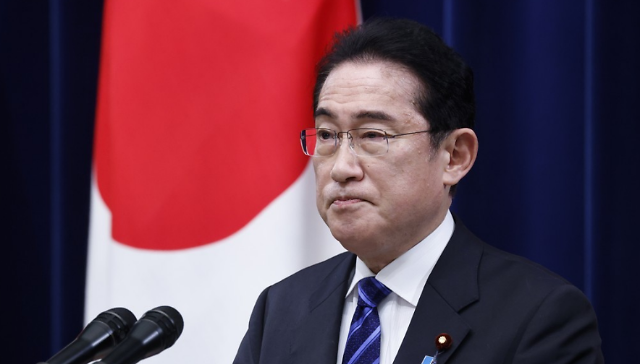
[Yonhap News Photo]
Although South Korean civic movement groups have demanded an apology, Tokyo has insisted colonial-era issues were settled in a 1965 agreement that restored diplomatic ties with the payment of $500 million. In 2018, the South Korean supreme court ordered Japan's Nippon Steel & Sumitomo Metal Corp. to pay 100 million won ($74,934) each to four Korean victims. The supreme court justices ruled that they cannot accept the premise that forced labor during the colonial era was legitimate.
After the order, Japan regulated exports of key semiconductor materials to South Korea after the Supreme Court's ruling and excluded South Korea from a list of trusted trading partners. The South Korean government overturned the Supreme Court's ruling on March 6 by assigning the Foundation for Victims of Forced Mobilization by Imperial Japan (FOMO), operated by the interior ministry, to become the third-party compensator.
The South Korean government's decision led to a summit meeting in Tokyo in March 2023 where the two leaders reached an agreement on resuming "shuttle diplomacy," a diplomatic action in which international leaders frequently visit each other's country to strengthen diplomatic relations. Prime Minister Kishida said the two nations would share opinions on strengthening the communication between governments to cooperate in various sectors including politics, economy, and culture.
Prior to Kishida's visit to Seoul on May 7, Kyodo News reported that the Japanese leader would inherit previous Japanese cabinets' positions including the 'Korean-Japanese Partnership Declaration for the 21st Century' which shows an apologetic stance on colonial rule. The declaration was announced by the two countries during the Kim Dae-jung-Obuchi Joint Declaration in October 1998.
Kishida will be the first prime minister to visit South Korea since Yoshihiko Noda, a former Japanese prime minister who visited Seoul in October 2011. He will stay in Seoul with his wife Yuko Kishida for two days.
Copyright ⓒ Aju Press All rights reserved.




